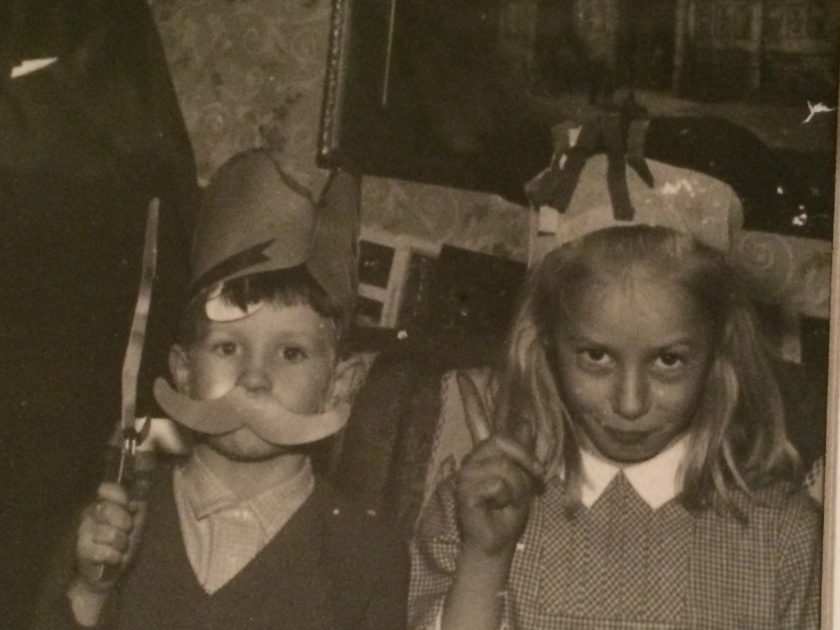Why we need Action Teams (containment)
We often hear that mergers are difficult to achieve because of cultural differences – the way we do things in our different organisations obviously differ, and difficulties can arise as a result. Some people assume they know what they mean about something and others have a whole different idea of how to behave.
In a merger what happens to culture?
The two pre-existing cultures are actually destroyed by the process of merger. As this happens, and as new ways of looking at things take hold, many of us can feel very uncomfortable. Instinctively we react quite strongly to the loss of the old way. The loss of the shared reality, on which we relied as individuals and a group, evokes a strong feeling of anxiety and can lead to strong resistance to change.
The most important thing for managers to do in this situation, as I have described before, is to provide reassurance and emotional containment so that the staff in the organisation can continue to work as normal, and in general find themselves in conscious support of the necessary process of change.
If the process of containment is not supplied by the leadership of the organisation very quickly people become highly anxious, feeling threatened by every change initiative, they hunker down and become paralysed. Then they start to throw around blame, scapegoating, attacking back, and their understanding of what is happening can become quite separate from reality. Even in my organisation where we have worked hard to contain anxiety and keep the focus on the task we have been surprised, and sometimes amused, by hearing back some of the gossip. If you find even normally able people saying they didn’t understanding, or weren’t told, or didn’t get the email it could be that their perception has become less reliable due to the stress that they are carrying. When this happens their ability to work effectively is seriously compromised. Concrete thinking leads to rigidity, a loss of creativity, and polarisation. As a result they cannot work effectively with others on integrating their differences and collaborating on the necessary change process.
Of course all change management is not about how we are feeling. Not at all. There are technical issues to be sorted out – what IT systems we will use, how savings will be made, what our growth strategy might be. All of these have to be planned in and work done to achieve them. But how people are feeling about the organisation, their team, the way the are treated and how trust (or distrust is growing) is of even greater importance. Senior managers need to understand and plan for the emotional aspect of the changes required, all the time providing containment of emotions.
While there will be plenty of delays, failures, difficulties and expense involved on the technical side it will not seriously affect a merger or any major change programme. However, if there is a failure to contain the emotions of the organisation, the set backs will be very severe. At worse, it could stop all progress and result in considerable loss of revenue. When this happens, and I have seen it in many mergers and change programmes to date, the staff are in a state of panic and anxiety. They spend most of their work time, and much of their time outside work, worrying about the change. They believe all the rumours about being taken over, discriminated against, treated unfairly, ignored, told lies, undermined, undervalued etc. And even if senior managers do not mean to harm or attack their staff the sentiment soon grows and is believed. Even innocent decisions are felt as attacks and the ability to carry on working, delivering services to their customers, is severely undermined.

What is an Action Team?
At Notting Hill Genesis we decided to use Action or Co-creation Teams to begin to create the new teams that will serve the new organisation. Originally a product of Total Quality Management Action Teams are a vehicle which can foster individual, group, and organisational learning, while contributing to the task of the organisation.
These are teams made up of representatives of different parts of the organisation who are empowered to solve cross-functional, and intra-functional problems. This includes the design of new departments, but also issues such as our accommodation strategy, or issues like terms and conditions.
Their success depends on their terms of reference which provide enough senior management input to contain anxiety, but not so much that their scope is limited. They need some overall parameters in which they must work (eg the accommodation action team has to take the convenience of customers and staff into account as well as a desire to save money and use our offices efficiently). Of course the main priority is to empower this group of staff to make decisions on how the whole organisation will go forward. This empowerment is real, not just words. The expectation is that the Board will accept their recommendations in full.
Here are the guidelines we issued to each department and team:
-
Each team will work on problems connected to the strategic direction of the organisation, ie real, big problems not small sub-sets.
-
Make sure one sponsoring senior manager is responsible for the team. He or she must have sufficient delegation to be able to make decisions.
-
Make sure that all managers know why and how these teams will operate and recognise their key importance in the work of the organisation. This means releasing staff and allowing them sufficient time to carry out their work.
-
Impose a time limit. These projects are relatively short term and have a clear finish time. We have found 3 months is about right, although some may take longer. Decisions on offices took about 12 weeks, whereas the design of our key operating model (delivering our key services to our residents) took five months.
-
Do not make a whole industry of this approach. Most people need to be able to get on with business as usual.
-
The sponsor is responsible for measuring and monitoring the progress of each action team in terms of both the task and the team dynamics. Most of our teams have worked effectively on the key task. However there have been cases where teams have been at loggerheads and have been fighting for supremacy. This has required the sponsor to take back control in order to reset the work.
-
There may also be difficulty and stress around processes which affect other parts of the organisation, for example the need for new IT systems or HR policies. In these cases the sponsor needs to oversee the processes which cross over into another part of the organisation.
-
Always celebrate team success and share the learning.
-
Make sure the contribution the team has made to the strategic direction of the organisation is documented and communicated to the whole organisation.
Next week I will describe how we got on; the successes and failures.



